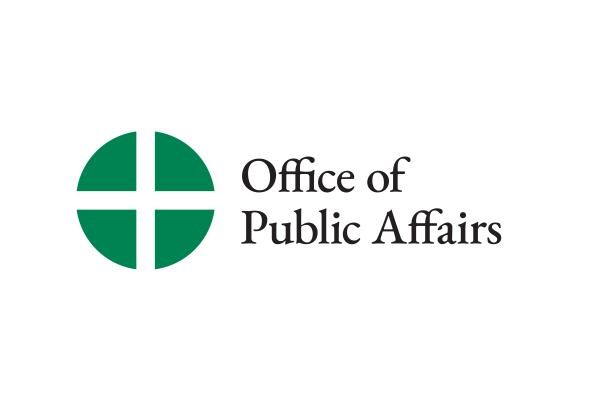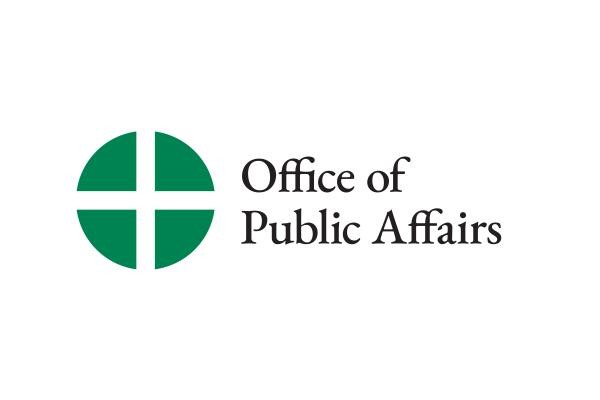Mid-Atlantic Dialogue of Muslims and Catholics Commits to Preparing Materials on Marriage and Family Life
WASHINGTON (March 28, 2000) -- At the third meeting of the Mid-Atlantic Dialogue of Muslims and Catholics, held at Immaculate Conception Center in Queens, New York, February 23-24, participants agreed to begin preparing a text together that covers their views of marriage and family life.
WASHINGTON (March 28, 2000) -- At the third meeting of the Mid-Atlantic Dialogue of Muslims and Catholics, held at Immaculate Conception Center in Queens, New York, February 23-24, participants agreed to begin preparing a text together that covers their views of marriage and family life. They hope to produce a text that will present information clearly on how each group views marriage, the requirements of each tradition for marriage, and various aspects of family life, especially those values which Catholics and Muslims hold in common.
This dialogue meets annually under the sponsorship of the Islamic Circle of North America (ICNA) and the National Conference of Catholic Bishops (NCCB). Dr. Khurshid Khan, representing ICNA, and Bishop Ignatius Catanello, Auxiliary Bishop of the Diocese of Brooklyn, co-chair the working sessions of the dialogue, and Catholics and Muslims from New York, New Jersey, and Pennsylvania participate. This dialogue began in 1998 and convened again last year in Philadelphia.
At previous meetings, participants agreed to explore further the topic of marriage and family since both religious groups emphasize the sacred aspects of the bond between a man and a woman in marriage. They also emphasize the sacred character of family life. The family is central to Islamic views of revelation, and family laws are pivotal Islamic social laws. For Catholics, a marriage between two baptized persons is a sacramental partnership, and the bond formed between a Christian and one who is not baptized is sacred because marriage belongs to the order of creation. For both religious groups, marriage is a divinely structured reality joining together a woman and a man. They also agree that understandings of family should include certain realities of contemporary life–single parent homes, blended families from previous marriages, and extended families. Those in the dialogue also believe that Muslims and Catholics can agree that family life includes spiritual practices and attests faith in the one God even when the couple are members of two religious traditions.
The Mid-Atlantic dialogue heard a presentation by Sheikh Ibrahim Nejm, Valley Stream, Long Island, on the marriage contract and ceremony in Islam, and another presentation by Fr. Philip Latronico of the Archdiocese of Newark on Pope John Paul II's apostolic exhortation on the family and the pastoral message of U.S. Catholic bishops to families. Dr. Khalid Qazi and Fr. Francis X. Mazur of Buffalo, New York, reported on a dialogue of Catholic and Muslim married couples which they have convened over the past several months. A similar dialogue of married couples had also met in Harrisburg, Pennsylvania, and Deacon Charles Clark of the Diocese of Harrisburg reported on that.
Also attending this year's meeting were: Bishop Joseph F. Martino (Archdiocese of Philadelphia), Dr. Zahid Bukhari (Georgetown University), Fr. Michael Lynch (Diocese of Brooklyn), Dr. Salman Yusuf (Vineland, New Jersey), Imam Hamad Ahmad Chebli (Islamic Society of Central New Jersey), Br. David Carroll (Catholic Near East Welfare Association), Imam Salihou Djabi (Masjid Malcolm Shabazz, Harlem, New York), Msgr. Donald Beckmann (Diocese of Rockville Centre), Al-Haaj Ghazi Khankan (Islamic Center of Long Island), Sr. Josephine Kase (Archdiocese of Philadelphia), Fr. William D. Corcoran (Congregation for Eastern Churches, Vatican City), Fr. James Loughran (Archdiocese of New York), Ms. Kathleen Bala (Diocese of Brooklyn), Fr. Guy Massie (Diocese of Brooklyn), and Dr. John Borelli (National Conference of Catholic Bishops).
The Mid-Atlantic Dialogue of Muslims and Catholics, co-sponsored with ICNA, is one of three regional dialogues which the NCCB holds with Islamic organizations. The two other dialogues, which also meet annually, are in Indiana and co-sponsored with the Islamic Society of North America and in California and co-sponsored with various Islamic consultative (shurah) councils of Northern and Southern California. The dialogue in Indiana is examining how Muslims and Catholics use the expression "the Word of God," and the dialogue in California, which held its initial meeting in early February, will begin examining at its next meeting the concept of surrender to God.


